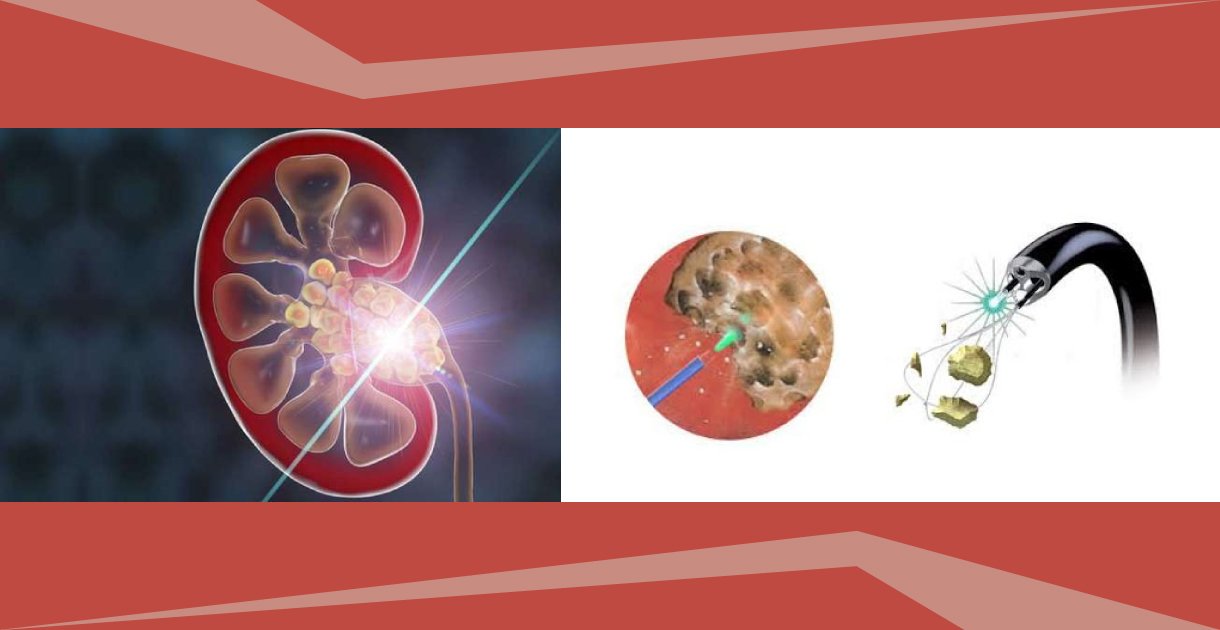Kidney stones can be an excruciatingly painful experience, affecting millions of people worldwide. While some kidney stones pass naturally, others may require medical intervention. Among the advanced techniques for treating kidney stones, laser kidney stone surgery has emerged as a highly effective and minimally invasive option. In this blog, we’ll know what laser kidney stone surgery entails, what patients can expect before, during, and after the procedure, and how this innovative treatment works to alleviate the discomfort caused by kidney stones.
Table of Contents
What are Kidney Stones?
Before knowing about laser kidney stone surgery, it’s important to understand what kidney stones are and how they form. Kidney stones are solid mineral and salt deposits that develop within the kidneys or urinary tract. They can vary in size, from tiny grains to larger, more obstructive stones. Factors such as dehydration, diet, genetics, and certain medical conditions can contribute to their formation. Symptoms of kidney stones may include severe pain in the side and back, difficulty urinating, blood in the urine, and nausea.
Traditional Treatment Methods
In the past, treating kidney stones often involved invasive procedures such as open surgery or shockwave lithotripsy, where sound waves are used to break up the stones. While these methods can be effective, they may also carry risks and require a longer recovery period. Laser kidney stone surgery, also known as laser lithotripsy, offers a more advanced and less invasive alternative.
Laser Kidney Stone Surgery
Laser kidney stone surgery involves the use of a specialised laser to break down kidney stones into smaller fragments that can be easily passed through the urinary tract. The procedure is typically performed under general anaesthesia or sedation to ensure patient comfort. Using a small, flexible scope called a ureteroscope, the surgeon guides the laser through the urinary tract to precisely target and fragment the stones.
Working Mechanism of Laser Kidney Stone Surgery
Once the laser reaches the kidney stones, it emits concentrated bursts of energy, effectively breaking them into tiny pieces. These smaller fragments can then be naturally expelled from the body through urine. The precision of the laser ensures minimal damage to surrounding tissues, reducing the risk of complications and promoting a faster recovery.
Benefits of Laser Kidney Stone Surgery
Laser kidney stone surgery offers several advantages over traditional treatment methods. Firstly, it is minimally invasive, meaning smaller incisions are made, leading to less pain and scarring. Additionally, the precise targeting of the laser reduces the risk of damage to surrounding organs and tissues. Moreover, the recovery time is typically shorter, allowing patients to return to their normal activities sooner.
Preparation
Before undergoing laser kidney stone surgery, patients will undergo a thorough evaluation to assess their overall health and the size and location of the kidney stones. They may be required to stop taking certain medications, such as blood thinners, in the days leading up to the procedure. It’s essential to follow any pre-operative instructions provided by the healthcare team to ensure a successful outcome.
During the Procedure
On the day of the surgery, patients will be admitted to the hospital or surgical centre, where they will be prepped for the procedure. Once under anaesthesia, the surgeon will insert the ureteroscope through the urethra and into the urinary tract. The laser will then be carefully manoeuvred to target and break down the kidney stones. The duration of the procedure can vary depending on the size and number of stones being treated.
Post-Operative Care
After the surgery, patients will be monitored closely as they recover from the effects of anaesthesia. They may experience some discomfort or mild pain, which can be managed with pain medication prescribed by the doctor. It’s essential to drink plenty of fluids to help flush out the remaining stone fragments from the urinary tract. Most patients can resume their normal activities within a few days, although strenuous exercise and heavy lifting should be avoided for a couple of weeks.
Potential Risks and Complications
While laser kidney stone surgery is considered safe and effective, like any medical procedure, it carries some risks. These may include urinary tract infections, bleeding, injury to the urinary tract, or the formation of scar tissue. However, the incidence of complications is relatively low, particularly when the procedure is performed by experienced surgeons in specialised facilities.
Advancements in Laser Technology
Recent advancements in laser technology have further improved the efficacy and safety of laser kidney stone surgery. For instance, the development of more precise laser systems allows for better targeting of stones while minimising damage to surrounding tissues. Additionally, newer laser fibres are more durable and flexible, facilitating smoother navigation through the urinary tract.
Cost Considerations
When considering laser kidney stone surgery, it’s essential to discuss the cost implications with your healthcare provider and insurance company. While laser surgery may initially seem more expensive than traditional treatment methods, it’s essential to weigh the long-term benefits, such as reduced recovery time and fewer complications, against the upfront cost.
Are there any specific conditions for Choosing Laser Kidney Stone Surgery?
There are specific conditions or scenarios where people may prefer laser kidney stone surgery over other treatment options:
- Large or Complex Kidney Stones: Laser kidney stone surgery is particularly effective for treating larger or more complex kidney stones that may not respond well to other treatments like shockwave lithotripsy or medication. The precision of the laser allows for targeted fragmentation of stones, even those that are densely calcified or irregularly shaped.
- Unsuccessful Previous Treatments: Individuals who have undergone other treatments for kidney stones that were unsuccessful may opt for laser kidney stone surgery as a secondary or salvage procedure. This could include cases where shockwave lithotripsy failed to fully fragment the stones or where stones have recurred despite previous interventions.
- Anatomical Factors: Certain anatomical factors, such as abnormal kidney anatomy or the presence of kidney stones in challenging locations within the urinary tract, may make laser kidney stone surgery the preferred option. The flexibility and precision of the laser allow surgeons to navigate through narrow or tortuous passages more effectively than traditional methods.
- Minimization of Tissue Damage: Laser kidney stone surgery is favoured by patients who are concerned about minimising tissue damage and preserving kidney function. Unlike traditional open surgery, which involves larger incisions and more extensive tissue manipulation, laser surgery is minimally invasive and targets only the stones themselves, reducing the risk of collateral damage.
- Quick Recovery Time: Many individuals prefer laser kidney stone surgery due to its relatively quick recovery time compared to open surgery or other invasive procedures. With smaller incisions and less tissue trauma, patients often experience less post-operative pain and can resume their normal activities sooner.
- Patient Preference: Ultimately, some patients may simply prefer laser kidney stone surgery based on their personal preferences, such as a desire for less invasive treatment options or a preference for procedures that utilise advanced technology.
Conclusion:
In conclusion, laser kidney stone surgery represents a significant advancement in urological treatment, offering patients a minimally invasive and highly effective option for addressing kidney stones. With its ability to precisely target and break down stones while minimising damage to surrounding tissues, this procedure has revolutionised the management of kidney stone disease.
Dr. Dushyant Pawar stands as a prominent figure in the field of urology, renowned for his expertise and dedication to patient care. Through his skilful approach and commitment to excellence, Dr. Dushyant Pawar has helped numerous individuals overcome the challenges of kidney stones, providing them with relief and a path toward improved quality of life.




